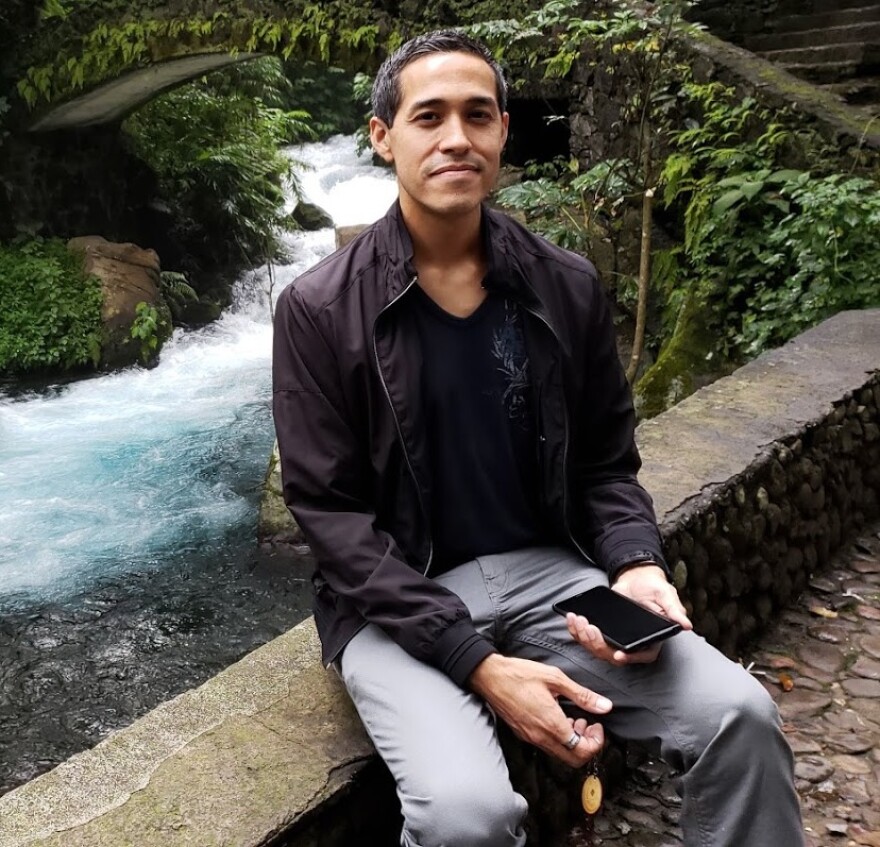Army veteran Sergio Alfaro of Chicago used to walk down the street terrified anyone he passed might try to hurt him. The former combat medic has battled PTSD for years since coming home from Iraq.
Alfaro, 38, was in a much better place at the start of 2020, but he said the pandemic has caused some of that progress to unravel.
"Now I have that sense of danger creeping back into my life again," he said. "I have to worry if the person standing next to me has COVID. Is that something I'm going to catch? Am I also going to be putting my family's lives at risk as well?"
Staying away from people may be the best way to avoid the virus, but it also fuels Alfaro's depression. He said things like making small-talk with coworkers or shaking hands with his therapist were important to his recovery.
"It just helps me not to feel so alone," he said. "It helps me to feel like there are other people out there who care for me and are looking out for me, and if you don't have that contact and are isolated it becomes that much harder to fight the negative thoughts."

Alfaro is not alone. He's a member of the Wounded Warrior Project, a service organization for post-9/11 veterans based in Jacksonville.
The group conducts an Annual Warrior Survey and this year asked how the pandemic was affecting members. About half of respondents said their mental and physical health had worsened because of COVID-19.
A deeper analysis of the results published in December found warriors with PTSD were more than three times more likely to struggle.
Melanie Mousseau, Vice President of Program Operations and Partnerships, said the pandemic is causing disruptions in care, financial instability, and a disconnect from loved ones.
"It's a perfect storm as far as really creating that environment that can increase the display of the symptoms, the severity of the symptoms," she said, adding that it is not too late to get help. "We know support and treatment works, so having access to it is paramount."
For some veterans, the pandemic has been a wake-up call.
Wesley Chapel resident Roberto Cruz, 39, recently opened up about his experience with the coronavirus while golfing.
It was his first time on the course in months. In the past, he'd typically hit the links with other vets. The camaraderie is important to him, and he appreciates golf because it's something he can do independently despite his physical limitations. He's recovering from temporary paralysis after getting shot in Iraq
Cruz said for more than a decade he brushed off suggestions from his veteran friends and family members that he address the invisible wounds of war, pointing to the scars on his arm where the bullet hit as proof of his only injury.
But then Cruz got sick with COVID-19 in July and spent weeks in isolation fearing for his life again.
"It was the worst, worst time of my life," he said. "And when you're there by yourself, your mind starts going to different places it hasn't been in forever. It made me realize and understand that I was mentally ill too, and now I took that huge step that I was never willing to take and accept, but I accepted that I need help."
Cruz recovered from the virus and entered a PTSD treatment program run by the Tampa VA hospital. He admits it's a tough time to start therapy. All of his appointments so far have been virtual.
Both he and Sergio Alfaro said it's just not the same to get care on video chat or over the phone. Still, they said having any sort of connection is what's helping them get through this pandemic.
Cruz said he's already made great strides.
"I feel like it's a new reborn, new me," he said. "I feel very positive now about my life, about my future. I'm more calm, I'm more peaceful. I'm finding the peace that I've been searching for."
As the pandemic surges, Sergio Alfaro and Roberto Cruz said they're focused on spending time with family and keeping up with treatment.
Alfaro is also volunteering as a peer support group leader to help other struggling vets.
"There's so much value in being able to be there for other people especially as they're in different parts of their own recovery, and I get help too when I talk to other veterans," he said.
And Cruz is working on his golf swing, both to maintain his game and his mental health.
Veterans in urgent need of support can call the Veterans Crisis Line at 1-800-273-8255 or text 838255.
This story was produced by the American Homefront Project, a public media collaboration that reports on American military life and veterans. Funding comes from the Corporation for Public Broadcasting.





